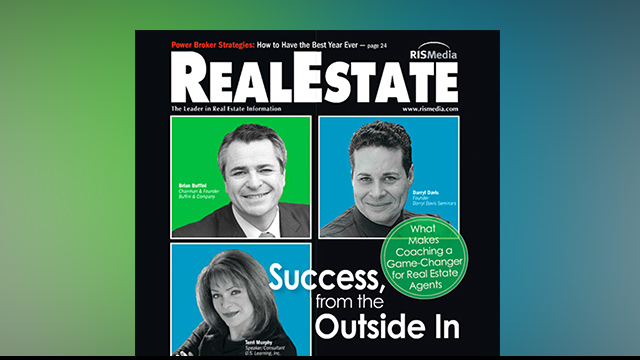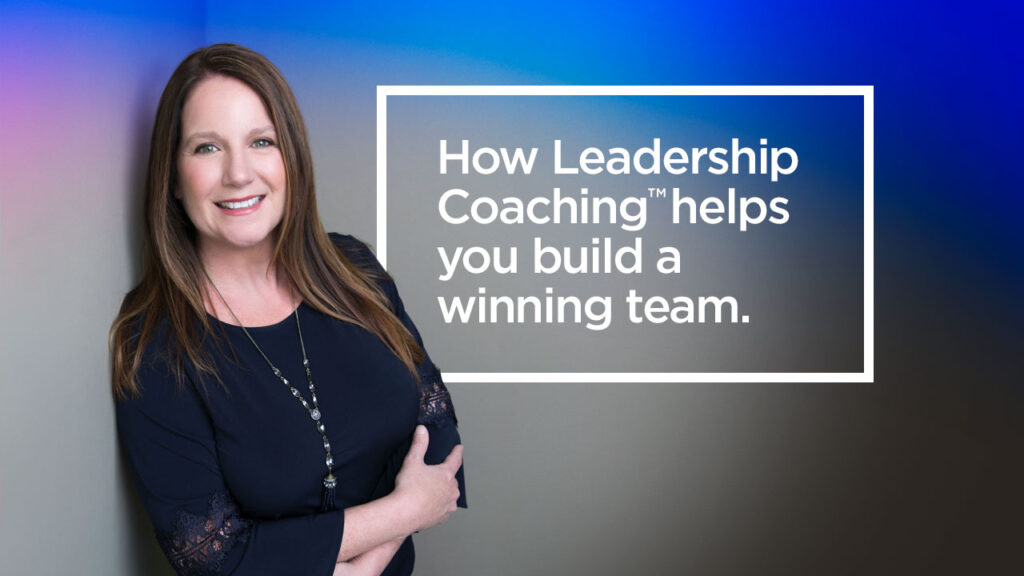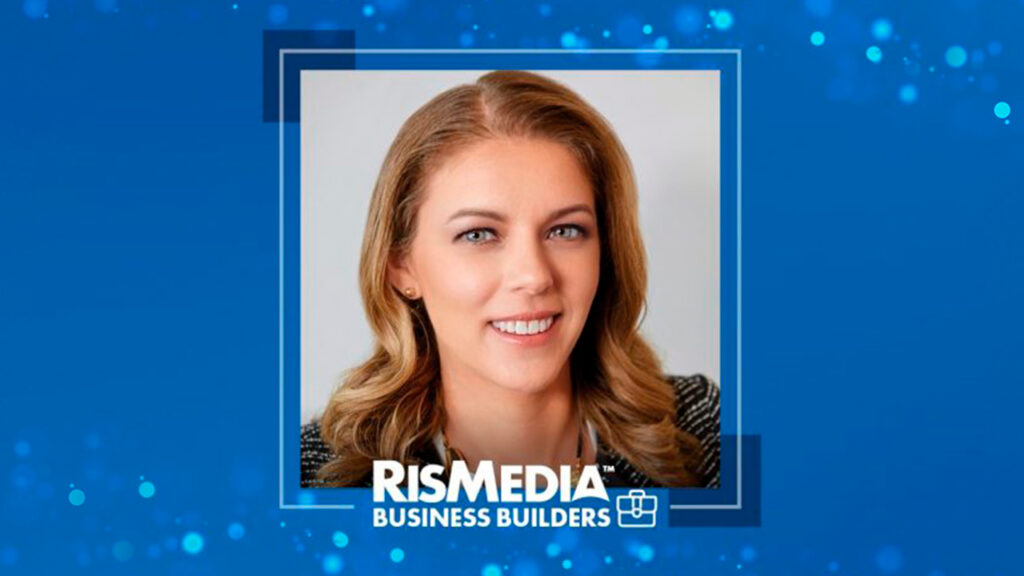Success, from the Outside In

What Makes Coaching a Game-Changer for Real-Estate Agents
Whether you’re a top athlete, a Fortune 500 company, or working through a personal matter, everyone can use the honesty and clarity of an outside expert to gain understanding. This is especially true in the unpredictable, constantly changing real estate business, which is why many agents have turned to coaches and trainers to help them improve their skills and increase business. And, while internal company training is critical, outside coaches often provide agents with something invaluable: a fresh perspective and more stringent accountability.
“We believe agents need mindset, motivation and methodology in order to succeed. That’s why every one of our clients sets goals – not only for business and income, but for the other vital areas of their life,” says Brian Buffini, chairman and founder of leading coaching firm Buffini & Company in Carlsbad, Calif. “The real estate business is hard. It can be an emotional rollercoaster and people need not just the grounding of a mindset, but the pick-me-up of motivation.”
J. Lennox Scott, chairman and CEO of the Northwest’s John L. Scott Real Estate, which is comprised of 2,700 agents in 110 offices, says his company does extensive internal training. “We walk in wit h the expectation that new agents will be productive immediately. They work with mentors daily, helping them move forward,” says Scott “Our approach is focused on a positive mindset, skill mastery and personal engagement activities, i.e., connecting with clients.”
Scott also encourages employees to pursue outside training and coaching programs as well, such as the Certified Residential Specialist (C RS) designation, in addition to real estate coaching businesses like Buffini & Company, David Knox, Tom Ferry and Ninja Selling.
Tom Ferry, a leading real estate coach and CEO of Tom Ferry – Your Coach in Irvine, Calif., says the reason real estate agents need outside coaching boils down to five words: “ideas, inspiration, implementation, income and accountability.”
“A coach holds you accountable to get it done, to stay inspired, to see ideas from a different perspective, and most importantly, to hold you accountable to implement. Accountability is the game-changer,” says Ferry. “Ideas create inspiration and agents need progressive, game changing marketing, script ing and converting ideas. Ideas get you inspired to implement.”
Dave Liniger, founder and chairman of RE/MAX, was one of the first to get behind the outside coaching movement. “Our industry has a long tradition of excellent coaches, and there are some great ones out t here right now,” says Liniger. “It’s always a mistake for agents, even very successful ones, to believe there’s nothing more for t hem to learn. Professional development should never stop. A skilled coach can help them stay focused, keep them on track and show them how to elevate their game. And when agents get better, everyone benefits-they themselves, their peers, their brokers and, most importantly, their buyers and sellers.”
Terri Murphy, a speaker/consultant based in Memphis, Tenn. says that while no one can work beyond their skill set, a coach is the conduit to getting beyond an individual’s perception of their scope of capability.
“We are all a repository of our core values and beliefs, which have been ‘validated’ by previous experience,” says Murphy. “An effective coach will help their clients become aware of these limiting beliefs and support them in working beyond their limitations, which is critical to reach ing new dimensions in personal and professional development.”
“Verl Workman, founder and coach of Workman Success Systems in Cottonwood Heights, Utah, says success is not magical or mysterious; it’s about doing the basic fundamentals that everyone knows they should do, but don’t.”
“What a coach does is add a level of accountability to the things all agents should be doing,” Workman explains. “Too many agents go in and pretend they’re busy, but they don’t do anything. There are three things an agent should do: prospect; show properties or list; and negotiate contracts. Our philosophy is to do a deep business analysis and look to see where they are leaving money on the table.They need to focus on these areas.”
According to Mike Schlott, president of the Randall Family of Companies®, comprised of 500 agents in 27 offices in Connecticut, Rhode Is land and Massachusetts, training is focused on the key areas of “transaction management, time management skills, working intelligently, and finding ways to develop business. If the agents do those things, they have a pretty good chance of success.”
Bill Plattos, executive vice president of Southern California’s First Team Real Estate agrees. “Once you have the basics, you need to know how to farm. Farming and sphere of influence are what most of our most successful agents have mastered,” explains Plattos, adding that follow up is critical. “It’s not enough just putting information out there, but also asking: Did you try it? How’d it work?”
Darryl Davis, founder of Darryl Davis Seminars in Wading River, N.J., likes to teach agents more than just the real estate business, coaching them on their commitments and goals in life.
“We look at the big picture. If in spired by one’s own vision, they will choose to do what they need to do as opposed to being forced and told what to do,” he says. “It’s about helping people stay committed and skill building.”
Coaches Corner: Advice from the Pros
If you want to make your business big, you’ve got to make your focus small. That’s according to Brian Buffini, who believes that when you’re struggling, the most important thing is to generate positive momentum…some feedback or results that’ll help you keep going.
“Make a list of all the people you know or have done business with. Go see them. Take them for a coffee. Go to lunch. Pop by their home. Let them know you’re there. Let them know you value the relationship. And oh, by the way…remind them that you’re never too busy for any of their referrals,” says Buffini. “You need a small win right now in the form of a good interaction with a client or maybe a referral. And who knows, maybe you’ll get a lead or two.”
Tom Ferry notes that unfortunately, 87 percent of agents fail within the first five years, and he feels the problem evolves from not answering the following three simple questions: Why is succeeding a must for you? Why will you do what it takes? Why will you follow through when others quit?
“If agents have a plan B in case real estate doesn’t work out, my stance is to do us all a favor and leave the business,” says Ferry. “That may sting for some, but that’s ‘care-frontation.’ If you’re going to call yourself a real estate agent. then you must commit and step it up. The consumer deserves better.”
And, according to Terri Murphy, if you truly want to advance yourself in any business, find a coach that works with and for you. “Identify people who do what you want to do and model them in ways that are suited to your core values and preferences,” she says. “There is no one-size-fits-all from my perspective. Other coaches have a set plan and that’s a good thing-but in the end, the best results come from knowing what the student expects, how they will measure their success and what they are willing (or not willing) to do to get there.”
The Outsider Advantage
While most real estate firms offer in-house training to some degree, many brokers and agents feel that outside coaches can accomplish more by ensuring that agents actually consume the training with commitment.
“Coaching is a stronger connection to enabling the agent to deploy the strategies and systems more efficiently than simply offering training information,” Murphy says.
While many in-house programs cover the basics of good sales training, they often can’t be individualized to a specific real-time issue, or to the learning style of agents who differ on a multitude of levels. such as age, demographics and preferred educational mediums.
“When you research the training engagement strategies of different highly successful companies, you note that when the coaching is very individualized and one-on-one, the outcomes are measurable,” Murphy says. “In addition, when the coaching is secured from outside sources, the accountability factors appear more stringent and the agent is answering to an entity not within their workspace, causing them to stay more committed to the process.”
Buffini says he has seen plenty of companies build their own coaching programs, but when he coaches clients in those same companies, they’ve increased production fivefold, much better numbers than what their own in-house program provided.
Firms and franchises already have so many things on their plate and I believe they can do a great job with support, training and events—that’s why we’ve created training programs to support broker/ managers in that endeavor; he says. “However, the coaching relationship requires the confidentiality of a confessional and the safety of having someone not too close to the situation.”
Outside coaches can afford the time and personal scrutiny for the particular needs of their coaching student, whereas a manager or company trainer would most likely find it challenging to keep up with each agent in real-time. In fact, many of the top outside coaches have measurement metrics to prove their services result in more sales and, ultimately, more profitability for both the agent and their company.
Workman thinks outside coaching shouldn’t replace in-house training from firms, but complement it. He also says that sometimes it makes sense to bring in more than one coach to expose agents to innovative thinking and to find the person who best resonates with them.
Doing the Math
According to Murphy, t he most successful brokers know that anything “free” translates to no value. Some brokers wi ll offer subsidized coaching and are very hands-on during the process. Their teams/agents need direction, and a smart broker listens and responds.
There are always going to be some who don’t want to invest money into coaching, feeling the financial obligation might be too much, but if management stays engaged with the coaching initiatives and their teams, the bottom line will show it’s a smart investment.
According to Scott, the investment in coaching and training is critical to the bottom line and, therefore, an integral part of John L. Scott Real Estate’s culture. “It’s just what we do. It’s who we are. Seventy-five to 80 percent of our work is direct repeat business. That doesn’t happen without transactional excellence. Training and coaching keeps agents inspired and gives them new concepts to try.”
Buffini notes that when it comes to success, everyone’s expectations are different; therefore, he allows individual agents to articulate what success looks like for them.
“We have all types of people, all the way from someone who makes $85,000 a year up to somebody who makes $5.5 million a year in income,” explains Buffini. “That’s their goal; that’s what they defined as success in their business and we have the system to ensure we support both types of clients. Of the thousands of people we work with, the average income is just under $300,000 a year. For $439 a month, we can get someone a 5,400 percent return on their investment. A lot of people throw their numbers out there without validating; we validate all our numbers for our clients’ sake, so they’re running their business in a business-like fashion, and for our sake, so we can have t he credibility behind our messaging.”
Keeping the Formula Fresh
Coaching methods and offerings have evolved over the years to stay relevant to both changing market conditions and changing agent needs. Along those lines, Ferry’s business model follows a well-known Peter Drucker quote: “Business has only two functions- marketing and innovation.”
“The real estate market is in continuous change and requires the ability to adapt to those changes,” says Maryann Vitale Alles, president and CEO of Berkshire Hathaway HomeServices Select Properties in St. Louis, Mo. “Coaches help professionals stay focused and help push them forward by using their own skill set, while classes and t raining help agents stay abreast of market changes.”
“In order to give our clients the best coaching, we must evolve. For example, in 2009, I recognized the importance of YouTube and began teaching our clients how to maximize the use of video to increase their business,” says Ferry. “I personally spend my time reading, testing and analyzing what’s new, what’s working right now and what’s coming to ensure our clients are first to market with new marketing techniques. Continuous innovation is the only way to ensure our clients are getting the best possible training.”
“Our industry changes weekly, and we need to adapt,” agrees Schlott. “Training is a reflection of where the industry is, at the time, so training needs to change with the industry.”
Buffini’s a big believer that principles don’t change; tactics do. “We have a very simple and easy-to-follow system for building relationships in such a way that you can generate a steady stream of high-quality referred leads to your business,” he explains. “It’s based on principles that don’t change—how to take care of existing clients in such a way that they continue to use your services, and also refer you to others.”
However, on a tactical level, he’s invested millions of dollars in creating several technology platforms, such as a CRM (Client Relationship Manager) based on the very lead-generation systems he coaches clients on; and in building his own TV studio, which broadcasts nationally and internationally on the Buffini TV channel.
“Although agents love coming to live events, we’ve created an opportunity for them to participate in both classroom training and tune into our live Success Tour events. They can stay at home and watch the broadcast. or watch it in groups at their office,” he says. “This year, I’ll do six Success Tour events and even though there’ll be a couple thousand people in attendance at each event, we will simultaneously broadcast it to tens of thousands of locations tuning in either individually, or in groups at an office.”
Getting Personal with Technology
Technology offers a plethora of new communication tools that coaches can utilize to improve service and communication to the masses in a simple and economic way. The same holds true for agents. After all, you basically are who Google says you are, so it is critical for an agent to develop a well thought-out digital “footprint.”
“Social proof is one of the key connectors to the Gen X/Y/millennial market segment, and unfortunately, agents have not embraced the power of these great channels to become the ·go-to resource’ or celebrity authority in their marketplace; Murphy says. “Having a cohesive Web strategy is more than a website and a Facebook page…it must drive home your individual brand of service and position in your industry. I am a strong supporter of a fully integrated Web and traditional marketing initiative as a critical component to a comprehensive business plan.”
Buffini believes that having a presence on social media is as important today as having a business card was in t he past. and while it’s a wonderful way to connect with people, provide value and stay in touch with how and where people are communicating, he warns not to get too caught up in the space.
“We also hold our clients accountable to not get lost in social media because it can become a distraction to the real work of building relationships, generating referrals and making sales,” he says.
Ferry’s coaching program includes access to private Facebook groups that his team, coaches and Ferry himself are very active in.
“The engagement, support, motivation and referrals that happen within the groups is nothing short of extraordinary,” he says. “The referrals alone could cover the entire cost of coaching. Last month, $2.1 million in referral commission opportunities happened within the groups.”
In addition, Ferry’s clients receive a monthly whitepaper report focused on digital marketing. Topics have ranged from how to master Facebook dark posts to Twitter ads and optimizing landing pages.
Workman notes t hat REALTORS® are good at spending money, but not about implementing the technology they purchase, so working with them on technology is an important part of the coaching process.
What Ultimately Works
While working with a coach is a great idea for most real estate agents, it’s only successful if the coach helps the agent truly connect with their own individual power.
“You can give an agent every slick tool available, call them daily, but if they can’t see it, or don’t want to see their potential, neither party will get what they wanted,” Murphy says. “My personal coaching is ‘successful’ when my client feels their own success and progress. Helping them to visualize their best outcomes is key to their connection with a successful coach.”
And for brokers, coaching and training is not only critical to helping agents succeed, but in attracting and retaining the best agents possible.
“Offering a different set of tools than our competitors gives us that edge we need to retain our current agents and recruit new ones,” explains Alles. “It’s no secret that success attracts more success, and if we can offer coaching and training solutions to breed more success, that is what we will do.”






